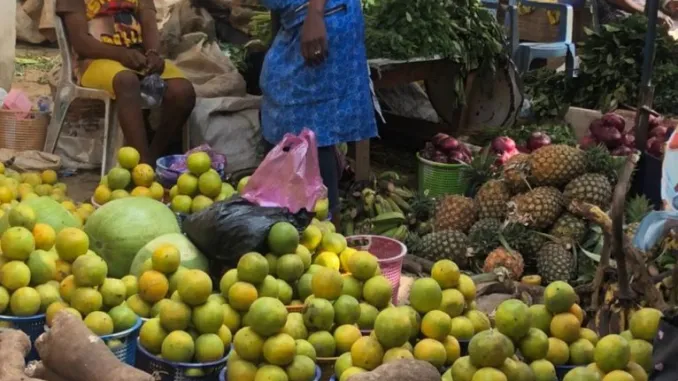Financial experts have urged the Federal Government to tackle the challenges in domestic production and food insecurity to check the country’s rising inflation.
They said this in separate interviews with the News Agency of Nigeria (NAN) on Friday in Lagos.
Mr Sunny Nwosu, the founder of the Independent Shareholders Association of Nigeria, said the authorities should tackle food insecurity spurring inflation.
“The Federal Government should address food insecurity by building more strategic grain reserves and fixing the moribund ones in the country.
“This will ensure that more food produced will be absorbed to our national silos in order to ensure food self-sufficiency,” he said.
Nwosu noted that the Federal Government needed to enhance the security situation in many farming communities.
“Addressing many of the communal crises is imperative to encourage more people to return to farms.
“This will improve our food output and resolve the food-driven inflation,” Nwosu said.
Also speaking, Dr Uju Ogubunka, former Executive Secretary, the Chartered Institute of Bankers of Nigeria (CIBN), said that dealing with the headwinds impeding production would curb inflation.
“Issues such as uninterrupted electricity supply should be made more available for local manufacturers to ensure they operate at optimal level.
“This will enable them produce substituted imported commodities and enhance their domestic capacity in the process,” Ogubunka said.
He said that the Federal Government should put an end to the unavailability of refined petroleum products because it was responsible for the inflationary rise.
“The sudden increase in the price of petrol and its associated product is driving the cost of transportation in recent times which is passed down to the final consumer through increases of goods and services,” Ogubunka said.
Mr Boniface Okezie, the President Progressive Shareholders Association of Nigeria, said the apex bank should unify the foreign exchange market.
“The current multiple foreign exchange rate operated in Nigeria is quite detrimental to genuine businesses.
“The multiple window gives room for arbitrage in the market and deprive businesses the ability to access the foreign exchange genuinely,” Okezie said.
He noted that the apex bank ways and means advances in the economy contributed to the increase in inflation rate.
“About N20 trillion have been injected to fund the Federal Government deficit finances over the years and this is detrimental to the economy because the apex bank has surpassed its expected threshold,” Okezie stated.
NAN reports that Nigeria’s inflation rate rose to 21.82 per cent in January from 21.34 per cent in December.
However, the inflation rate dropped for the first time in 11 months in December but it picked up again in January.
Food-price inflation, which accounts for agricultural products, increased to 24.32 per cent in January from 23.75 per cent in December.



